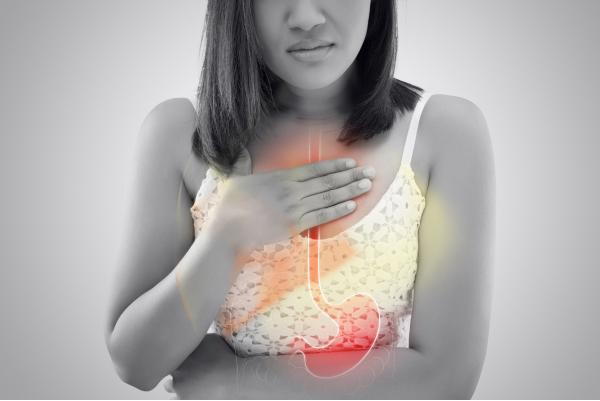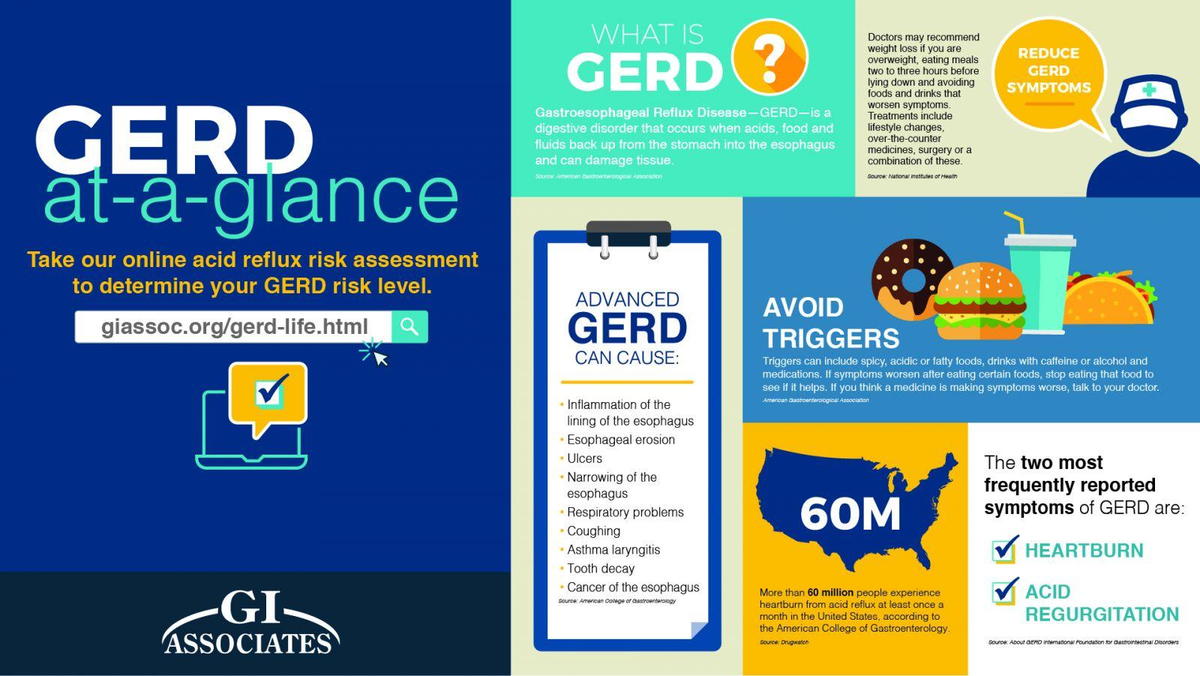
We’re right in the middle of the holiday season, and while that has some celebrating “the most wonderful time of the year”, it’s leaving others suffering in silence due to a digestive disease called GERD. So, before you attend that next holiday party or family gathering filled with delicious appetizers, drinks, and full course meals, make sure you understand this disease and how to keep it from impacting and even ruining the rest of your holiday season.
What is GERD?
GERD, or Gastroesophageal Reflux Disease, is a common problem in America, impacting around 20% of the population. To put that into perspective, 60 million Americans report 2 or more incidents of GERD each month. GERD is characterized by symptoms and/or tissue damage that results from repeated or prolonged exposure of the lining of the esophagus to acidic contents coming back up from the stomach. This occurs when the lower esophageal sphincter (the circular muscle at the bottom of the esophagus that allows food and drink to enter into the stomach) becomes weakened or relaxes too much, allowing the contents to leak backward and into the esophagus. The contents from the stomach begin eating away at the tissue in the esophagus, ultimately leading to severe chest pain (heartburn), throat ulcers, scar tissue accumulation, or in severe and more rare cases cancer.
What are the Symptoms of GERD?
There are many symptoms of GERD, but the two most frequent are heartburn and acid regurgitation. Statistics show that 60 million Americans suffer from heartburn at least once a month. Other symptoms of GERD include:
- Chronic Cough
- Chest pain
- Difficulty swallowing
- Asthma
- Laryngitis
- Bad breath or a bitter acidic taste in the mouth
- Dental Erosion
When Should I Consult My Doctor?
Unfortunately, too many people who are suffering from GERD don’t seek the medical attention they need. In reality, anyone who is experiencing any of the symptoms of GERD regularly or for a prolonged period of time needs to schedule an appointment and consult a physician. They will be able to diagnose your condition - whether it is GERD or not - and help you get the treatment you need. If you are experiencing severe chest pains and aren’t sure if heartburn is the issue, you need to seek medical attention immediately - as heartburn and heart attacks can be difficult to tell apart. With heart attacks, severe chest pains are usually accompanied with shortness of breath and even pain in the jaw or arm. However, symptoms can vary for each individual, and emergency help should be sought when experiencing chest pains to any degree.
How Do I Treat GERD?
Thankfully, GERD is a treatable disease, as there are certain things people struggling with GERD can do to help mitigate or stop the suffering. Certain lifestyle changes can provide relief for GERD sufferers. Losing weight, ceasing smoking and limiting alcohol consumption are key changes.
Steering clear or minimizing certain foods that trigger increase acid production like peppermints, chocolates, spicy foods, citrus , or caffeinated beverages can provide the relief many seek.
Some experience discomfort when they eat too much or when they lie down after eating. In fact, some have reported cases of waking up randomly in the middle of the night and gagging, believing they are about to vomit. This sensation occurs because the acid is leaking and creeping back up into the throat in a significant enough way that it causes one to awaken rapidly. After eating, try to stay upright and allow the food to settle in the stomach. In addition, adjusting and increasing the time between dinner and bedtime gives the stomach more time to digest the food before lying down. Shoot for at least a couple hours between eating and laying down if you can.
Unfortunately, changing aspects of one’s lifestyle doesn’t always do the trick when it comes to finding relief from GERD. In more severe cases, over the counter and/or prescription medications can be extremely helpful. These medications include proton pump inhibitors, H2 receptor blockers, and antacids. There are other medications your doctor may prescribe to counteract stomach acid or help the stomach empty faster. If diet changes and medicine don’t prove effective, your doctor may recommend further testing. If medications and lifestyle changes are not effective, surgical options may be considered.
If you have questions about GERD or are experiencing some of the symptoms, please schedule a visit with us quickly so we can help you find the relief you deserve!

